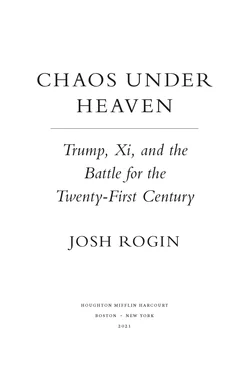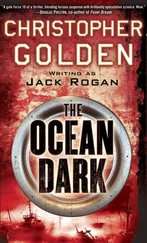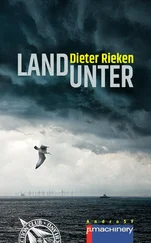Different sectors of US society have awoken to these challenges at different times and in different ways. As the US government started to engage academia, the tech industry, and Wall Street on the national security implications of China’s behavior, there was a lot of friction. Many were skeptical of Trump’s claims and intentions. American institutions guard their independence fiercely and rightly, but these were challenges that required them to work with a Trump administration they didn’t trust.
These challenges would have existed even if Donald Trump had not been elected president. To be sure, our reaction would have been different; if Hillary Clinton had won the presidency in 2016 instead of Donald Trump, her administration undoubtedly would have used different language, focused more on multilateral cooperation and alliances, perhaps figured out a way to have the United States join the Trans-Pacific Partnership. But it’s unlikely she would have been able to continue the Obama approach to China. She would not have been able to avoid the conclusion that Washington had lost the bet it made twenty years ago, when it had granted China permanent normal trade relations in the hope that helping China expand economically would cause it to liberalize politically and that would lead to peaceful coexistence.
The frustration with China’s long promise to liberalize inside the US government at the end of the Obama administration was reaching a boiling point. “As the Trump administration came in, everyone was beginning to realize that our grand forty-year experiment with Beijing was not working out as we’d planned, not because we didn’t try, not because it wasn’t well intentioned. It’s just that the CCP has a different view,” said former army officer Matthew Turpin, who served in Obama’s Pentagon and on Trump’s National Security Council staff. “They don’t want political liberalization. They are going to fight us on that as much as possible.”
The challenges of this historic moment were perhaps inevitable—but it is also unquestionable that the Trump team at times bungled its handling of the difficult situation they inherited, often due to the administration’s dysfunction and the president’s behavior. By mishandling important aspects of the new competition and mistreating allies, the administration committed damaging unforced errors. The outcome has been that this new era of naked competition with China is now seen by many as a spat between the United States and China, rather than an international response to China’s actions as it rises. The Trump administration also got several things right, including the basic conclusion that the US government had to confront China’s behavior not on a government-to-government level alone but in various parts of American society.
This sense that the world is becoming divided into two separate, competing systems that can’t coexist is hardening into what many people—not without reason—have referred to as a second Cold War. The implications are just as troubling now as they were then, and the risks just as great. “When you look back on the details of how the first Cold War started, it’s not as if the two sides in 1946 said ‘OK, let’s have a cold war,’” historian Michael Pillsbury, one of Trump’s early China advisers, said at the Aspen Institute in January 2020. “It’s a series of blunders.”
Both the United States and China could be blamed for their share of blunders in the few years preceding Pillsbury’s remarks, and China owned the lion’s share. But the disorder of the Trump administration was baked into its DNA, and the China issue was not immune from the implications.
To think of the China story during the Trump administration as a binary fight between hawks and doves, panda sluggers and panda hug-gers, the blue team and the red team, or any other such construction is too simplistic. There were many camps that formed assorted alliances over time, based on overlapping interests. At different parts of the story, various camps gained and lost champions inside the administration. Also, individuals’ views evolved over time; where many officials began on China is far from where they ended up.
There were the Superhawks, who wanted Trump to speed the downfall of the CCP. They were led by Bannon at first but included Navarro, Stephen Miller, and others. The Superhawks also believed in economic nationalism, the return of manufacturing from abroad, and the protection of domestic industries, even at the expense of free trade. Another, closely related group were the hardliners, mostly national security and law enforcement types who had been watching the China threat rise and were pushing for a stronger US response—but one that would stop short of pushing for regime change in Beijing. Matt Pottinger was this group’s platoon commander and Marco Rubio was their spirit animal. John Bolton, Mike Pence, Mike Pompeo, and Robert O’Brien each fit into this camp and each led the charge at different times. They wanted to confront Beijing and reset the competition on better terms. But unlike the Superhawks, they didn’t want to blow up the whole relationship for the fun of it.
On the other end of the spectrum, there was the Wall Street clique, led by investment banker and film producer Steven Mnuchin and Goldman Sachs executive Gary Cohn and later CNBC talking head Larry Kudlow. They came to the table with a coterie of billionaires that constantly injected itself into the middle of the US-China relationship. These pro-business players wanted to avoid confronting China on national security or trade, and to focus instead on opening up Chinese markets and integrating the two economies as much as possible. They shared overlapping interests with many of the bureaucrats, lifers in agencies all around town, who disliked the Trump team and worked inside the system to maintain the status quo.
There was also the Axis of Adults. This was the team of senior national security officials surrounding Trump—especially in the beginning of the administration—who came from long careers in the military or government and saw themselves as the grownups in a group of inexperienced and unqualified Trump campaign and political staffers. This included Defense Secretary James Mattis, Chief of Staff John Kelly, National Security Adviser H. R. McMaster, and others who viewed their role to be guardrails to keep the crazy president from driving the car off the road. Each of these officials would eventually annoy Trump or get fed up with his antics and leave the administration. On China, they tended to be hardliners on security matters but skeptical of the Superhawks’ efforts to start a trade war.
Certain officials played unique roles and didn’t fit into any one camp. Jared Kushner had a huge impact on the US-China relationship at the many points he was directly involved, because he was the closest to the president and because he maintained his own channels to the Chinese leadership. Wilbur Ross acted like a China hawk at times and a New York billionaire at others, because he was both. Pillsbury became a unique Trump whisperer on China but never joined the administration or committed to any one team.
This book tells the story of how this fractious team managed (or often mismanaged) the US-China relationship at a crucial juncture under the leadership of Donald Trump, a president so unpredictable that he could scarcely have been imagined by foreign policy makers on either side before 2016. Trump’s own views on China and his own behavior set the tone as the relationship started rocky and spiraled downhill from there. But one level below him, his senior officials played their own games. And two levels below them, actors inside the system steered it toward the outcomes they desired.
This is their story. But it is also the story of how regular Americans in all walks of life over these four years gradually woke up to the fact that China’s rise and the CCP’s strategy are no longer faraway issues, but now pose direct and immediate challenges to their security, prosperity, freedom, and public health. This realization is not limited to Americans; people in countries across the world are undergoing it as well.
Читать дальше











